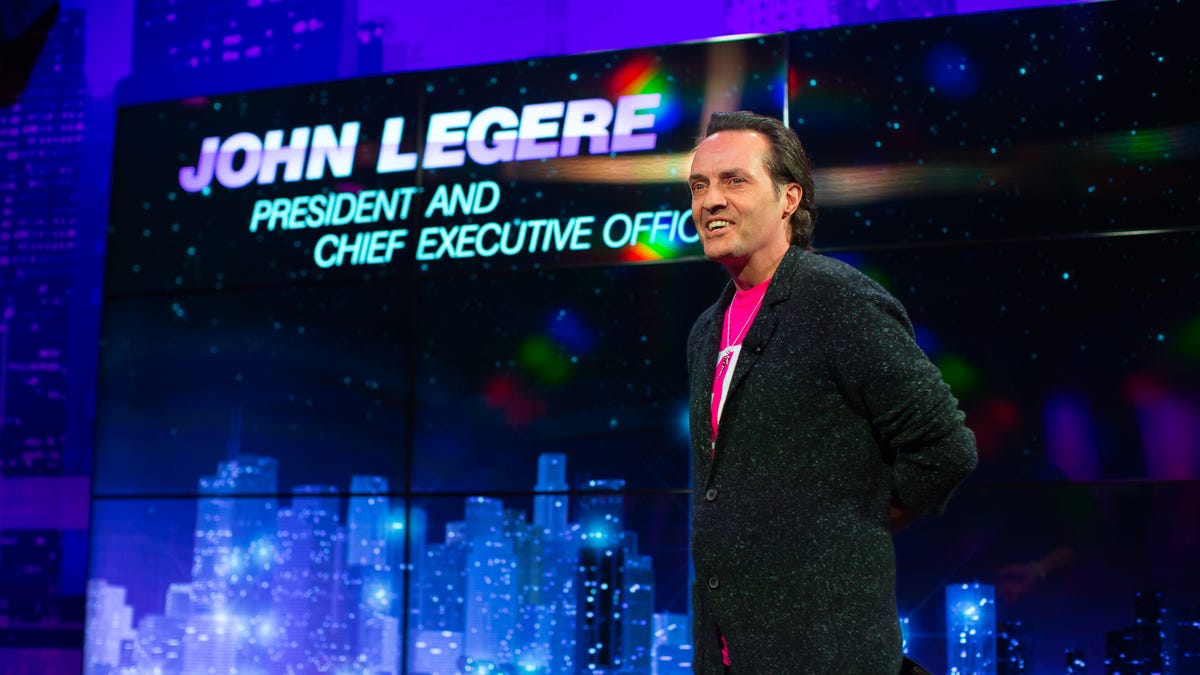Feds approve T-Mobile merger with MetroPCS
FCC Chairman Julius Genachowski says the merger will strengthen the U.S. wireless market by "moving toward robust competition and revitalized competitors." The Justice Department gives its OK, too.

The Federal Communications Commission today officially approved the merger between T-Mobile USA and MetroPCS. The Department of Justice also gave a green light for the deal.
In a statement, FCC Chairman Julius Genachowski said that the merger will strengthen the U.S. wireless market by "moving toward robust competition and revitalized competitors."
The Justice Department, meanwhile, said in its statement that because MetroPCS is a regional provider and T-Mobile is a nationwide carrier, competition should not be harmed at a national level by allowing the companies to combine. And because MetroPCS competes in markets where all four nationwide carriers also operate, the agency also didn't see any potential for anticompetitive behavior in the newly combined company.
The merger was announced in October 2012. According to the proposal, T-Mobile's parent company, Deutsche Telekom, will pay $1.5 billion in cash for a 74 percent stake in the company. MetroPCS's shareholders will own the other 26 percent of the combined company. The new company will be called T-Mobile.
Unlike AT&T's proposed $39 billion bid to acquire T-Mobile in 2011, this merger has had a relatively smooth ride through the regulatory approval process. Last week, the Justice Department allowed a critical waiting period required under antitrust law to lapse, effectively signaling its support for the merger. The Justice Department's statement today simply means that the agency did not find any reason to block the merger due to antitrust concerns.
And the FCC has now given its official stamp of approval, effectively stating that the merger is within the public interest. The agency will now allow the transfer of wireless licenses as part of the deal.
But that doesn't mean that there hasn't been any opposition to the merger. There has been some, mostly from labor unions that contend the merger will put jobs in jeopardy. After stating that the merger would create jobs, T-Mobile and MetroPCS recently filed a statement with the FCC admitting that there would be job losses. But the companies said the job losses would be minimal.
In its approval of the deal, the FCC indicated that it believes that wireless broadband in general will create far more jobs than would be lost as part of the merger.
"Mobile broadband is a key engine of economic growth, with U.S. annual wireless capital investment up 40 percent over the last four years, the largest increase in the world, and few sectors having more potential to create jobs," Genachowski said in his statement.
For the deal to officially be completed, the companies also need approval from the Committee on Foreign Investment, since T-Mobile is a wholly owned subsidiary of Deutsche Telekom, a German telecommunications company.
And finally the companies also must get shareholder approval to close the deal. MetroPCS said it is strongly urging shareholders to approve the deal and, in a statement, said it expects the deal to close shortly after the April 12 meeting of stockholders.
Update 11:44 a.m. PT: Added news of the Justice Department's approval of the deal.

